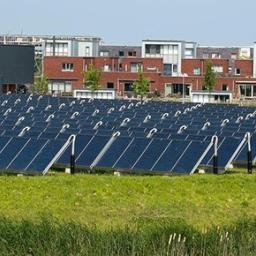PhD-thesis Lucy Oates: broader approach to urban basic infrastructure services
Urban infrastructure for energy, housing, transport, waste management, and water is fundamental for human and ecological wellbeing. As urban populations worldwide continue to grow, equitable and sustainable service delivery becomes more important for addressing both environmental and socioeconomic development challenges. A shift away from a narrow emphasis only on technological solutions or economic efficiency, towards one that also centres justice and participation, can contribute to global goals, found Lucy Oates during her PhD research. She defended het thesis on May 14th at the TU Delft.
Existing large scale, centralised, technology-driven solutions are often less locally suitable than the diverse service delivery arrangements that characterise many Southern cities. In her PhD-thesis Oates explores how community-led and hybrid service delivery models in Southern cities contribute to inclusive and sustainable urban development.
For example, in Ahmedabad in India, some 50,000 female waste pickers formed a cooperative to collect recyclable waste and sell it to recycling companies. “What they do is essentially provide a public service at little or no cost to the state,” says Oates. “These women earn their own income and support one another. And the system works: in parts of the city, recycling rates are similar to those in Rotterdam.”
Oates draws on case studies from 14 cities from across Africa, Asia, and Latin America to explore the delivery of essential services by community-based organisations, cooperatives, and informal service providers. Often considered “unorthodox”, such models can – given appropriate state support – contribute to improving service accessibility, mitigating environmental impacts, and empowering marginalised communities.
Oates concludes that it would be beneficial for policy, practice, and academic theory to broaden their scope beyond technocratic or one-size-fits-all models to also consider more pluralistic and locally grounded approaches to urban service delivery. Oates: “There isn’t just one path to sustainability. My work isn’t about giving ready-made solutions, because those differ by region and society. But about questioning our assumptions.”




